CONFEST/CONFEGE
SINGED and integration of public and private databases discussed in roundtable of Conference of Digital Era
July 29, 2024 06h28 PM | Last Updated: August 01, 2024 02h26 PM
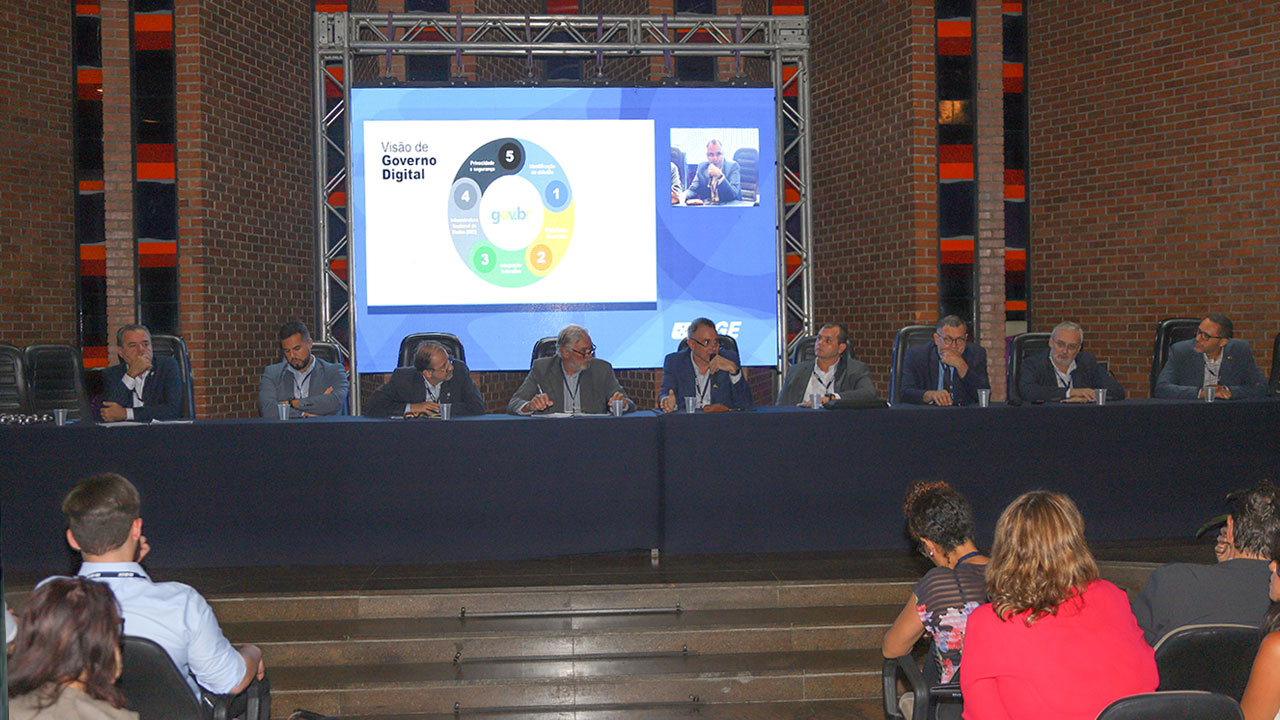
Integration of national databases is an urgent need, though it represents a major challenge of infrastructure and governance, discussed today the participants of the roundtable Technological Risks and Opportunities for the Public and Private Sector, held Monday afternoon, 29, first day of discussions of the National Conference of Data Producers and Users - National Sovereignty in Geosciences, Statistics and Data: Risks and Opportunities for Brazil in the Digital Era.
The purpose of the Conference is to discuss risks and opportunities stemming from the current governance of the Digital Era, and to address the consolidation of the National System of Geosciences, Statistics and Data (SINGED). The conference will go until Friday, 2, at the Maracanã Campus of the State University of Rio de Janeiro (UERJ). It is promoted by the IBGE to discuss and start the articulation to implement SINGED. This and other Conference roundtables are broadcast on-line by Digital IBGE and are available in the IBGE platform.
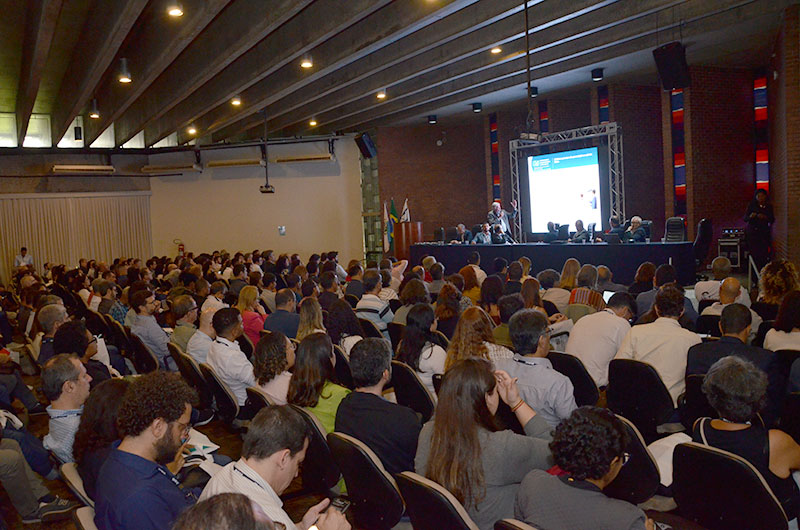
The roundtable was moderated by Marcos Mazoni, IBGE´s Director of Information Technology, who highlighted the importance of data governance as a guarantee of sovereignty in a moment that we live the surveillance capitalism era.
"We are no more clients, but business objects of large companies that capture our information and monitor our behavior. The algorithms are gaining their own governance with the generative Artificial Intelligence, yet there are backstage people moving the engines of the Artificial Intelligence (AI), and every political and social relationship is through social media. As opportunities, we have the Common Economy and the need to build alternatives to the platform capitalism through initiatives like Open Government Partnership, with aims at radicalizing democracy," stated Mazoni.
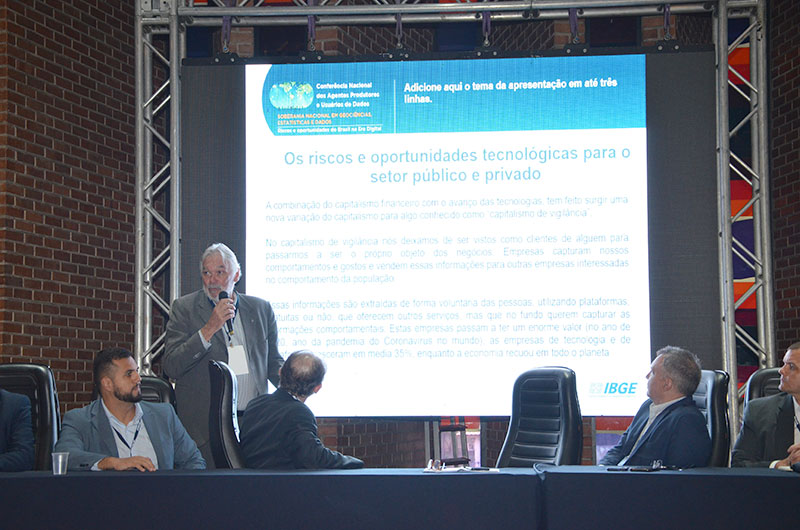
He advocated an open data policy, having the government in the center surrounded by pillars as participation tools - like that adopted by the federal government for the Participative Multiannual Plan, as well as the pillars of transparency and innovation.
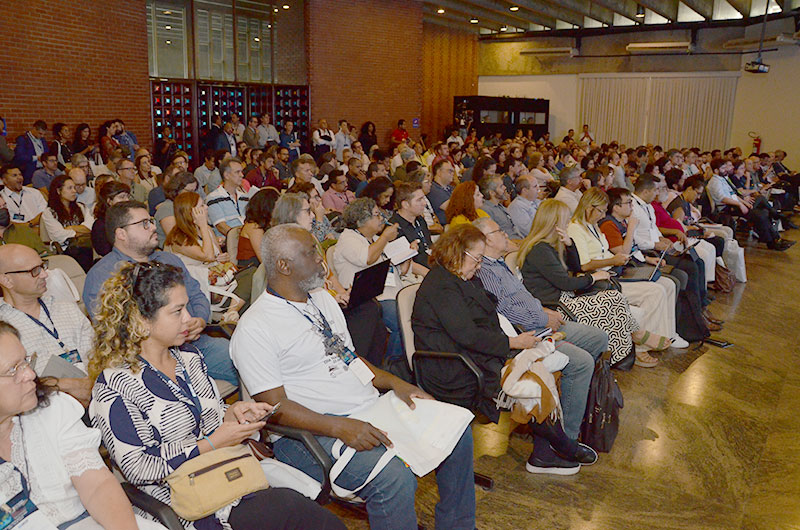
Among other participants in the roundtable, Alexandre Amorim, President of the Federal Data Processing Service (Serpro), and Rodrigo Assumpção, President of the Social Security Information and Technology Company (Dataprev), were present, representing two companies in charge of some of the largest databases in Brazil. Amorim highlighted that the silos should be disassembled and that, for many offices, data mean power many times.
"The capacity of dialoging should be created to rebuild Brazil. Serpro has been working with the Secretariat of Digital Government. The tax reform is an example of how Serpro has been opening its data to states and municipalities," informed Amorim.
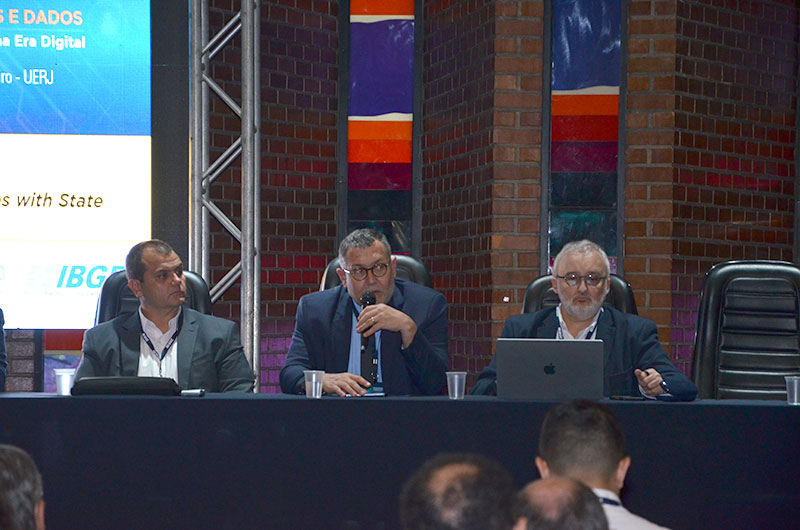
Rodrigo Assumpção, from Dataprev, presented cases of how Dataprev´s data management has helped in the mitigation of climate crises like the drought in Amazonas, the fires in Pantanal and the floods in Rio Grande do Sul, in which the company released 12 types of benefits. He reminded that the company has three datacenters and 42 billion records in its databases, as well as provides more than 400 social security services with more than 100 million accesses to digital services per month. "We are discussing today how to be prepared for our future. We are quite involved in the Program of Benefits and Data Qualification," completed Assumpção.
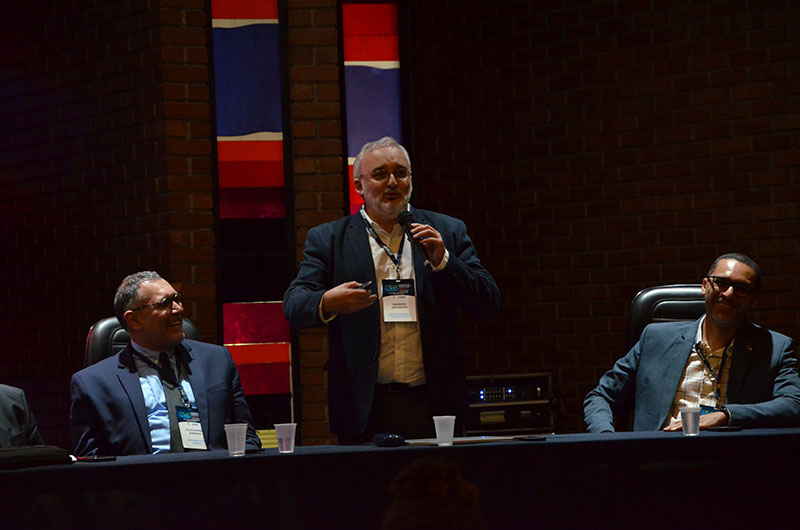
Among the representatives of data users, Danilo Cabral, Superintendent of the Superintendence for the Development of the Northeast (Sudene), Alexandre Ribeiro Motta, President of the National Health Foundation (Funasa) and Marcos Falcão, Executive Manager of the Bank of the Northeast of Brazil, highlighted the structuring role and the importance of the IBGE data in their operations.
"I greet the IBGE and this initiative. It is always good to dedicate a full week to discuss data, information, geographic space, territory and public policies. The Bank of the Northeast was born with the DNA of concerning with the reduction of regional inequalities. We are present in 2073 municipalities comprising our area of operation, housing 28% of the Brazilian population and we need the IBGE data," stated Falcão.
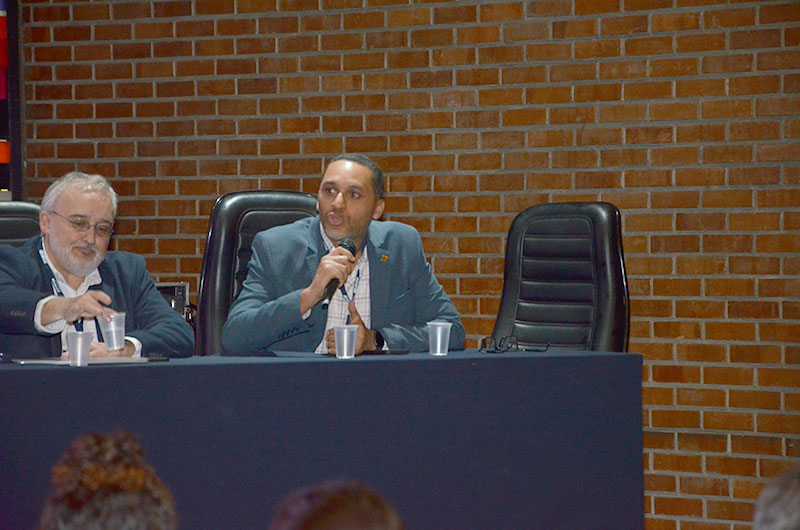
For Cabral, from Sudene, the discussion proposed by the IBGE represents an important milestone for repositioning the role of the State. Sudene operates in an area of 1.8 thousand km2 where 80 million Brazilians live, representing 13.5% of the Gross Domestic Product. The role of Sudene is to foster regional development and, to do this, it counts with resources from the Northeast Constitutional Fund, with R$44 billion, the major financial instrument of the National Policy of Regional Development (PNDR) for the region and one of the pillars of the Regional Plan for the Development of the Northeast.
"We address 2074 municipalities and there is a lot to be done in the innovation area. That is why we are looking for this partnership with the IBGE to formulate policies that require data. The world is looking for energy to install datacenters. The Northeast has clean energy.
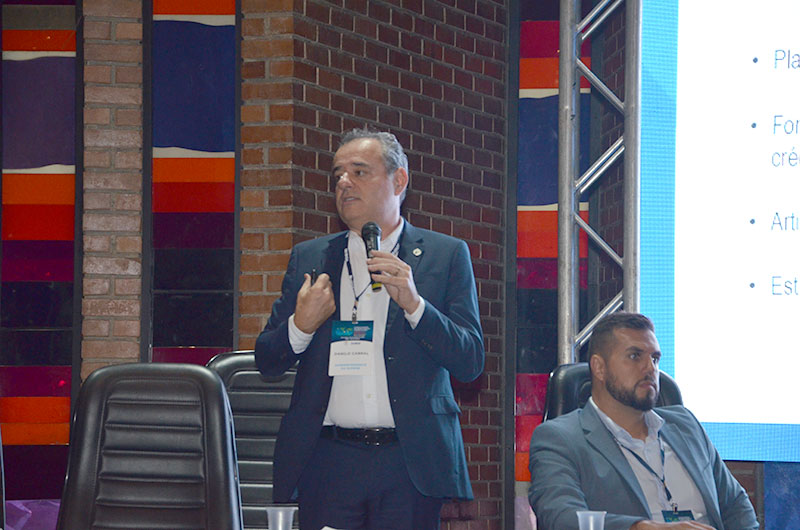
Funasa advocated the need to extend the discussion of sanitation for the rural area, where most of the 4,914 cities addressed by this office are found. Funasa aims at developing public policies in the area of sanitation for municipalities up to 50 thousand inhabitants, 85% of the Brazilian cities. "These cities are the ones that mostly require support and technical resources. The IBGE data are aggregated and divided into urban and rural. The analysis of aggregated data was a leap, yet this leap is much greater in urban than rural sanitation. We need even more aggregated data to better understand the reality of the Brazilian rural sanitation and, thus, tackle this issue. The support of the entire system of information production and statistical data in Brazil is key for us," stated Motta.
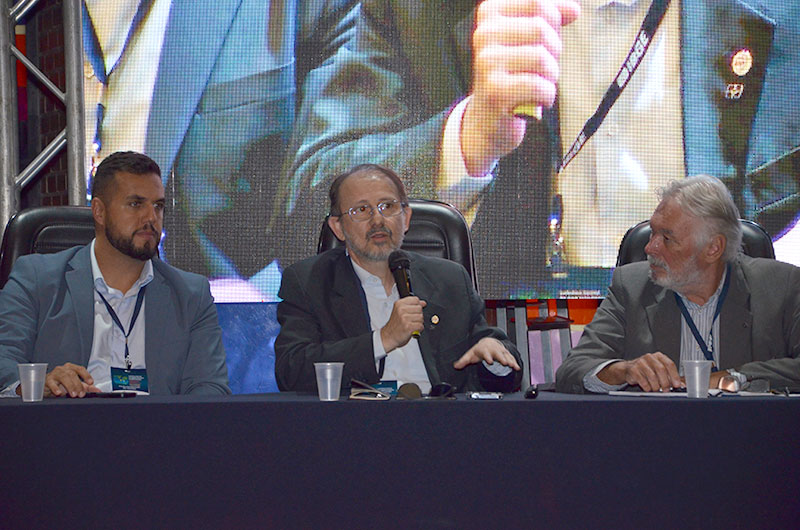
"Having passed one year and half of this administration and we have a great challenge. Concerning data sovereignty, it is important the role of Serpro and Dataprev. Yet, the guidelines of the previous administration were different and involved the privatization of both companies, which we disagree considering the dialogue they have with the market," stated Rogério Mascarenhas, Secretary of Digital Government of the Ministry of Management and Innovation in Public Services.
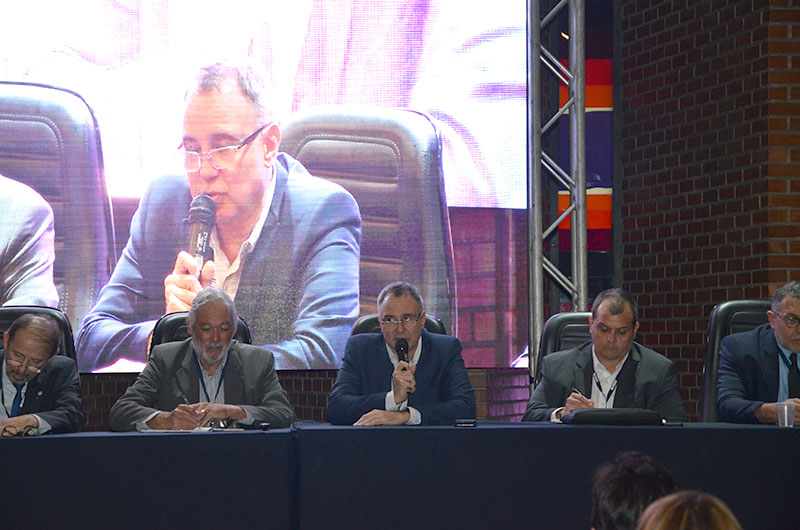
Technology companies present highlighted their contributions to the digital inclusion, transformation and development, as well as to the creation of jobs. Vicente Moliterno, Sales Director for the Public Sector of Dell Technologies, highlighted that the company is in Brazil for 25 years and has a factory in the interior of São Paulo, where it manufactures 98% of what is sold in Brazil. "I believe that five axes are required for the digital transformation: job generation, digital education, increase in tax revenues, cybersecurity and citizen experience, in which Brazil has advanced in initiatives like Gov.br and Pix," emphasized Moliterno.
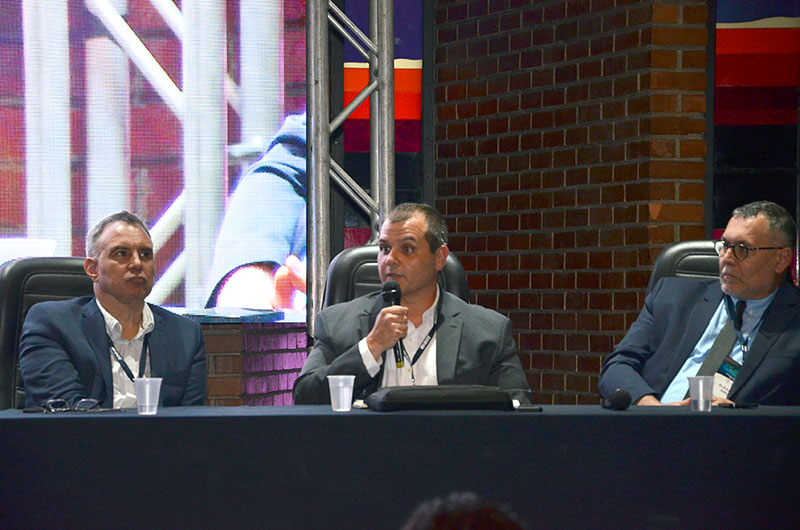
Also in Brazil for 25 years, SAP is based in São Paulo and has a research and development center in São Leopoldo (RS). Matheus Souza, Chief Innovation Officer for SAP Latin America and the Caribbean (LAC), talked about a number of opportunities for Artificial Intelligence, citing forecast of an increase of 14% in the world GDP up to 2030. "Cloud computing will maximize the benefits of the AI for the private sector, as well as bring agility and competitiveness," completed Souza, who represented the cases of companies like Petrobras, which has been benefiting from the use of Artificial Intelligence.
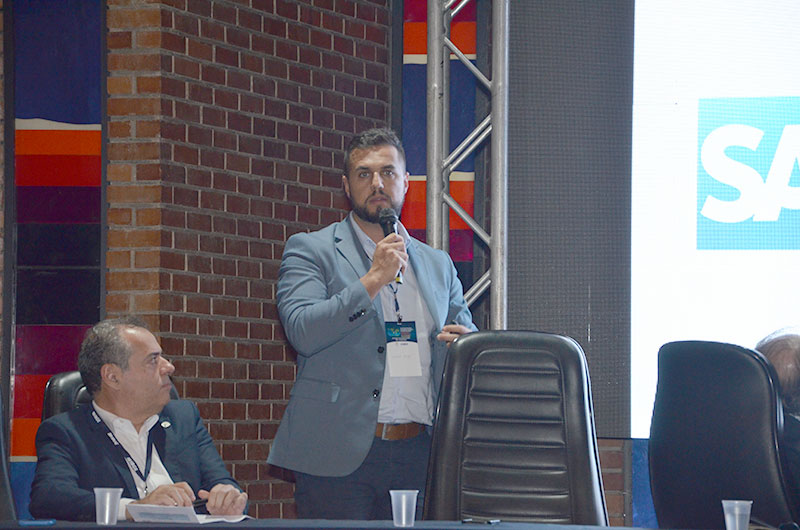
Remotely, Felipe Daud, Director of Governmental Relations at Alibaba and Ronan Damasco, National Director of Technology at Microsoft highlighted the advances that can be obtained with the technology. "Digitalization was used to develop rural China by training producers in marketing and electronic commerce, which was recently seen in a visit of the Brazilian delegation with the Minister of Agrarian Development," told Daud, informing that the company has also been using Artificial Intelligence to improve e-commerce processes.
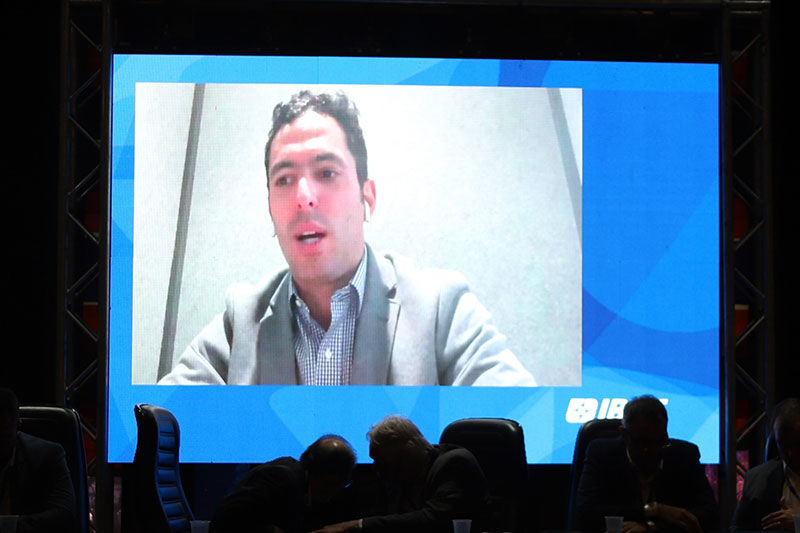
Damasco, from Microsoft reminded the great explosion in the volume of data with the emergence of the Internet and previews that, likewise, AI will represent a new era. “AI is in all applications and sites. Two years ago, the launching of Generative AI was the trechnology with the quickest adoption, 100 million users in 2 months. Microsoft partnered with Open AI and has invested billions of dollars, as it believes in a new way of interacting with the technology through agents or copilots. In the future, AI, copilots and metaverse will be integrated," concludes Damasco.
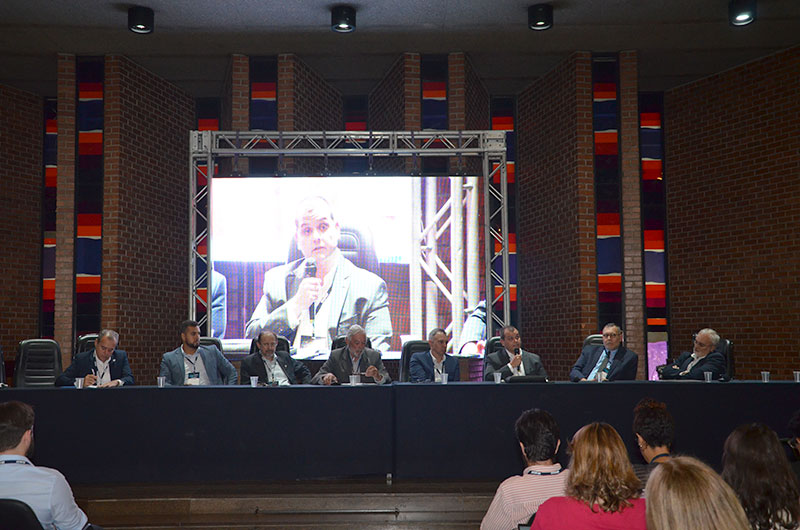
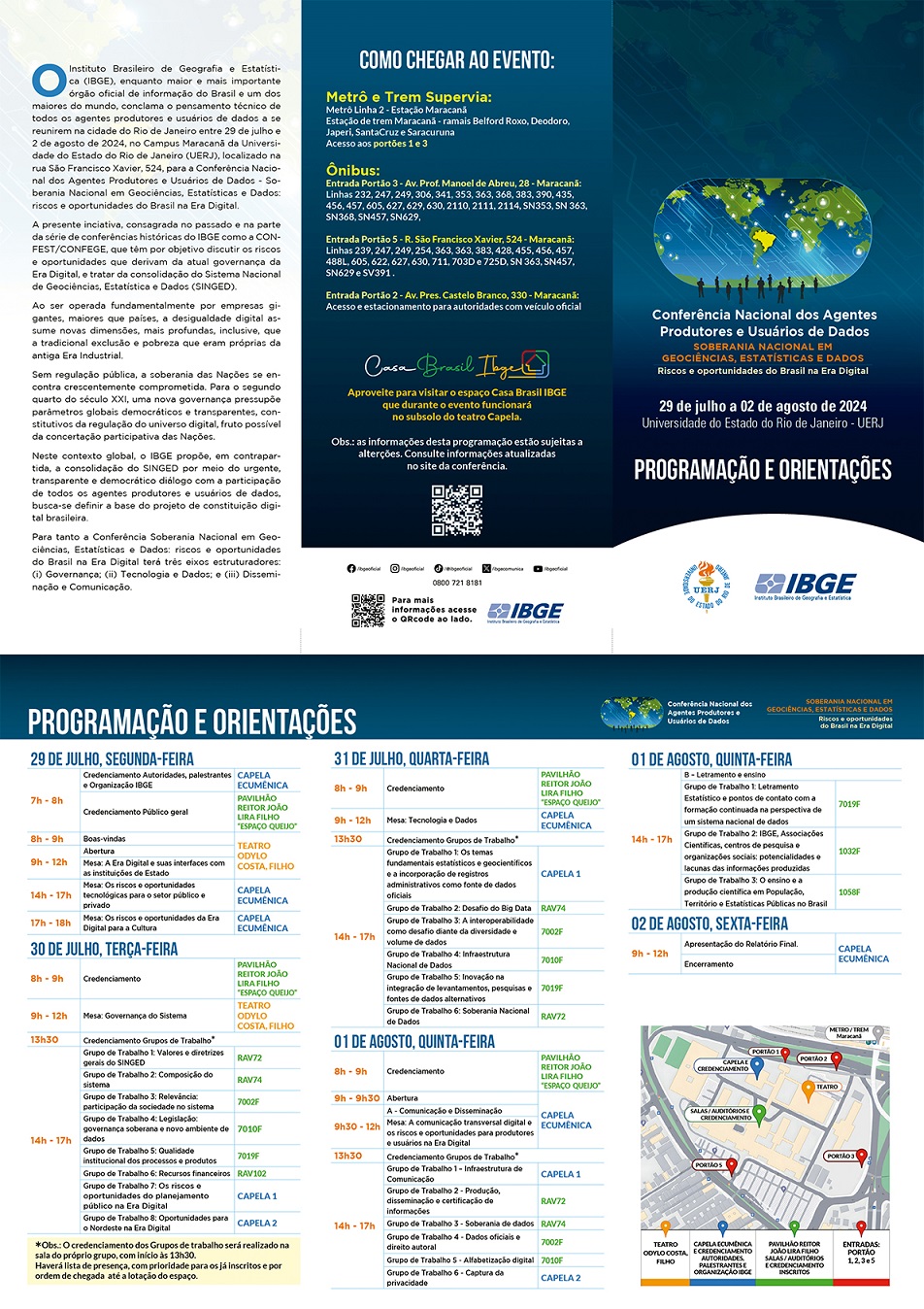
National Conference of Data Producers and Users
Venue: State University of Rio de Janeiro (UERJ)
Date: July 29 to August 2
Broadcast: Digital IBGE Digital (ibge.gov.br) and Webex, for registered participants
Registration: IBGE Store
Information: Conference website (eventos.ibge.gov.br/conferencia-soberania-nacional)
Document for debate: (eventos.ibge.gov.br/conferencia-soberania-nacional/documento-para-o-dialogo)




















